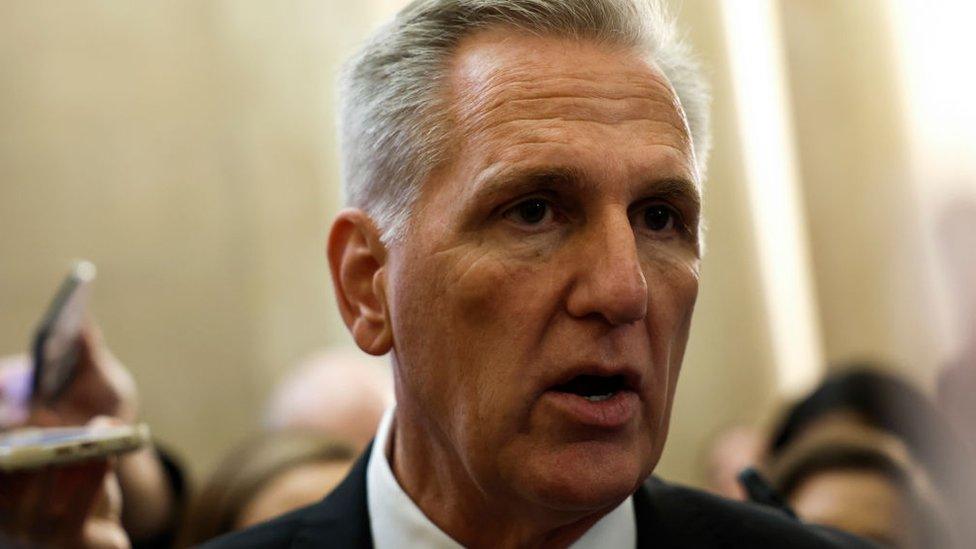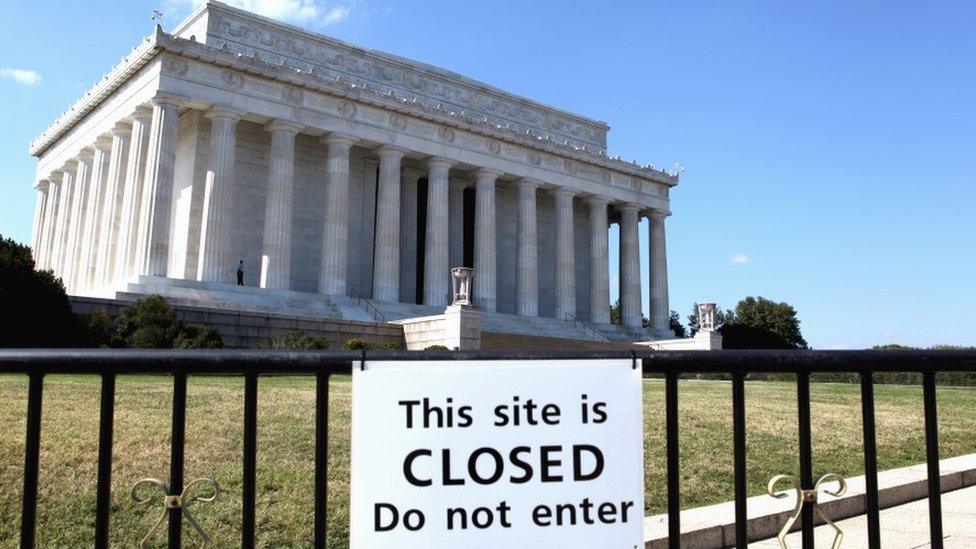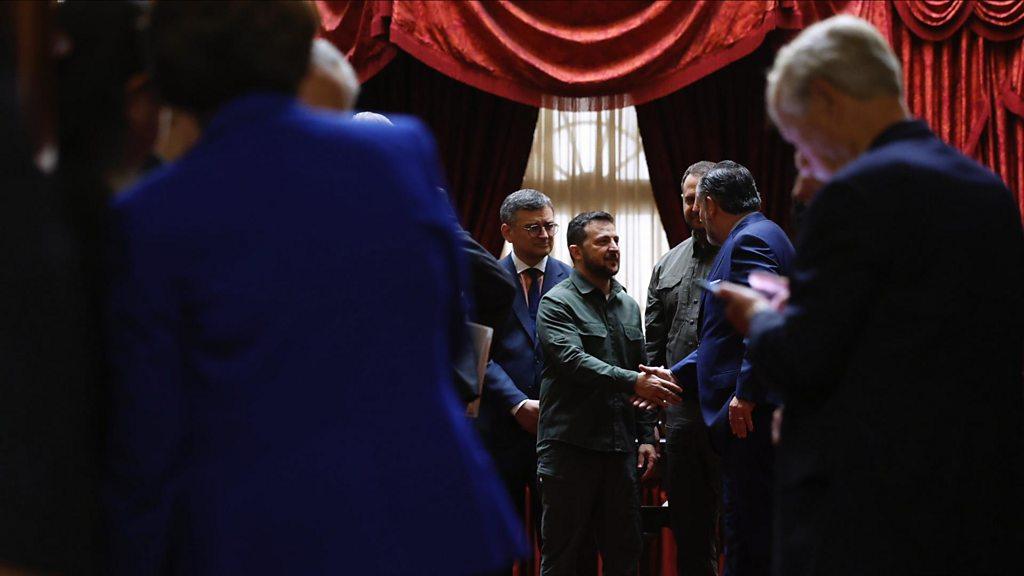Shutdown looms as warring House Republicans leave town
- Published

House Speaker Kevin McCarthy said some members of his party 'just want to burn the whole place down'
With less than 10 days to go before the US government shuts down, a spending effort by congressional Republicans has failed for a second time this week.
In a sign of the discord in his party's ranks, US House of Representatives Speaker Kevin McCarthy said some "just want to burn the whole place down".
Mr McCarthy had earlier indicated the House would work through the weekend, but lawmakers flew home on Thursday.
It was a concession that there are not yet enough votes to keep the lights on.
Federal government agencies run out of the funding approved by Congress when the fiscal year ends at midnight on 30 September.
On Friday, the White House will instruct agencies to update their shutdown contingency plans, as is customary seven working days before a disruption.
The Republican-controlled House must approve spending measures that will also pass in the Democrat-controlled Senate and be signed by President Joe Biden.
But the growing ideological split between moderate House Republicans and a hard-right faction has come to a head as the clock ticks closer to the deadline.
The latter, comprised of roughly half a dozen conservative rebels, is demanding spending cuts and rejecting any more funding for the war in Ukraine.
Members of the group have also threatened to force Mr McCarthy out of the speaker's office if he cuts a deal, particularly with centrist Democrats, to get past them.
In a nod to these demands, the speaker held only a private meeting on Thursday with visiting Ukrainian President Volodymyr Zelensky. By contrast, his Senate counterpart, Mitch McConnell, convened an all-senators meeting.
Watch: Zelensky's critical visit to Washington DC...in 100 seconds
Mr McCarthy also told NBC News that Congress "didn't have time" to host Mr Zelensky for a joint address before the House and Senate.
Elected Speaker in January after 15 rounds of voting, Mr McCarthy has had little margin for error. His party holds a slim nine-seat majority in the House, but several members are currently absent.
On Wednesday, Republicans emerged from a three-hour meeting behind closed doors with apparent agreement on a $1.5tn (£1.2tn) spending measure that includes border funding and would create a commission to study ways to tackle the national debt.
It prompted Mr McCarthy to move forward with a key defence spending bill written by his members - an effort aimed at messaging that the chaos within his caucus had ended.
But the illusion of consensus collapsed on Thursday. Five Republicans teamed up with all Democrats to defeat the bill from even advancing to a vote, the second time that has happened in three days.
"This is a whole new concept of individuals that just want to burn the whole place down," Mr McCarthy complained to reporters. "It doesn't work."
He added that he would pursue the same strategy he had taken to become Speaker: "Just keep working, never give up."
The rebels, however, appear likely to dig in their heels further after former President Donald Trump weighed in for the first time on Wednesday night, apparently in support of a shutdown.
Several allies shared Mr Trump's Truth Social post with a rallying cry of "hold the line".
Lawmakers had been told they would be working through the weekend but were alerted after the failed vote that no more business would be conducted this week.
Several expressed frustration that there now appears to be no clear path forward to fund the government.
"House Republicans continue to be in the midst of a civil war," House Democratic leader Hakeem Jeffries said.
"It's a civil war that is hurting the ability of the Congress to do the business of the American people and to solve problems on behalf of everyday Americans."
Complicating matters for Mr McCarthy is that leaders in the Senate from both parties are pushing for a bill that funds the government and sends more money to Ukraine.
That makes it increasingly likely the fractured House Republican conference may need to accept some compromises or some help from their Democratic colleagues before a spending bill is sent to President Biden's desk.
As patience wears thin over the House's efforts, Senate Majority Leader Chuck Schumer moved on Thursday evening to advance a separate spending effort through the chamber.
And with President Zelensky by his side in the Oval Office, President Biden said the fate of his request for $24bn more in Ukraine funding now rests with "the good judgment of the United States Congress".
"There's no alternative," he said.
Related topics
- Published1 October 2023

- Published22 September 2023
